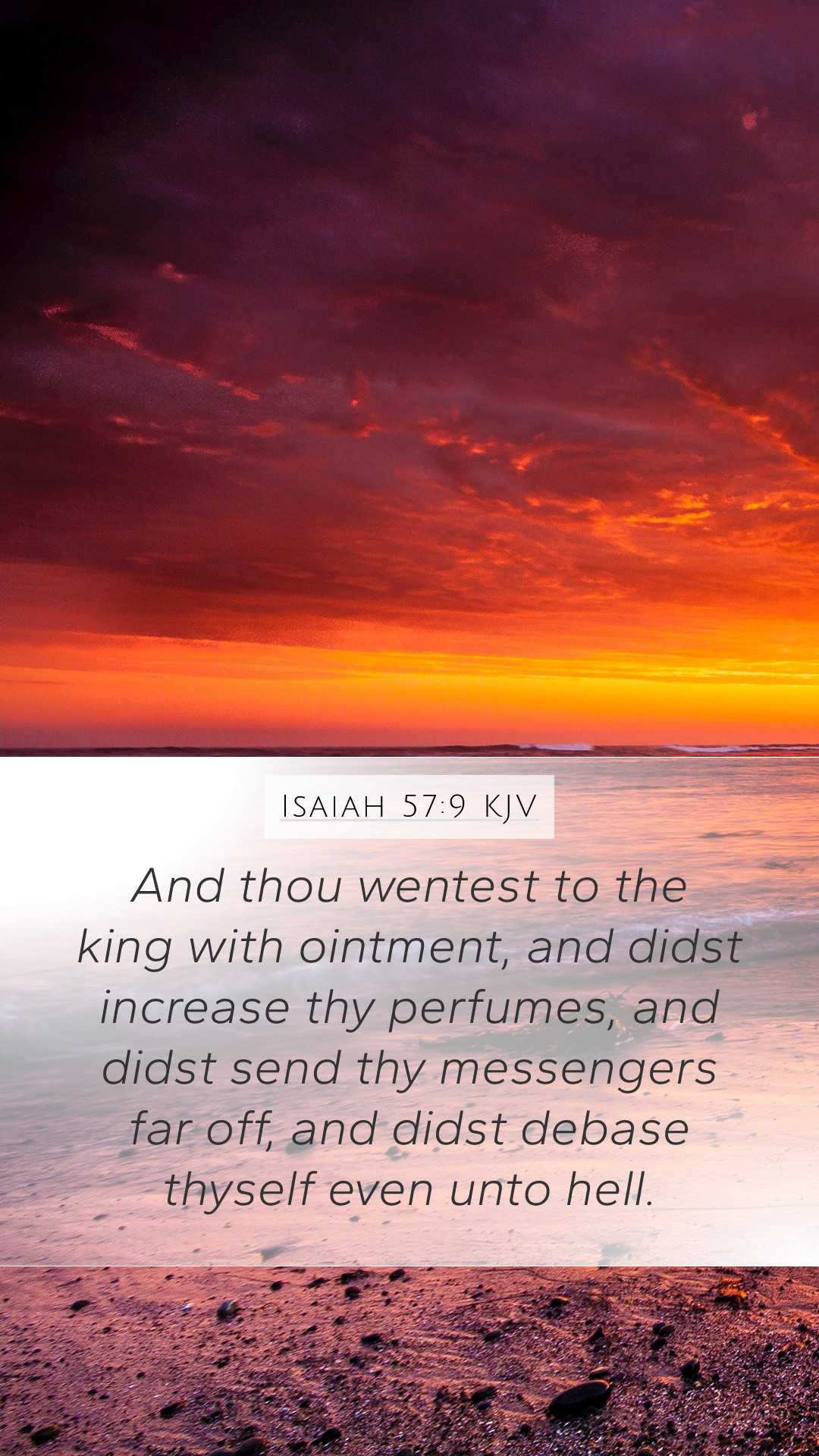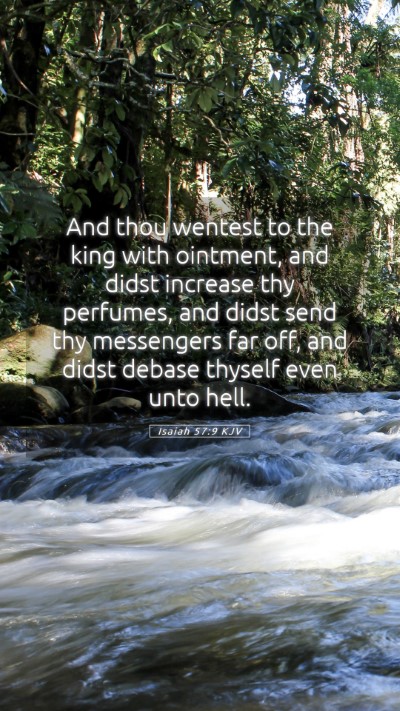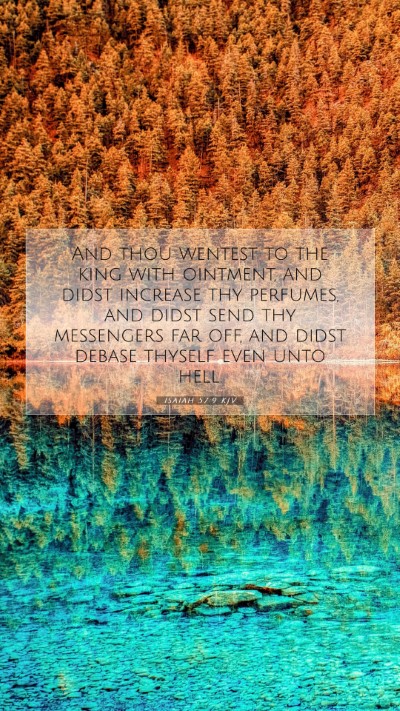Understanding Isaiah 57:9
Bible Verse: Isaiah 57:9 - "And thou wentest to the king with ointment, and didst increase thy perfumes, and didst send thy messengers far off, and didst debase thyself even unto hell."
Overview of Isaiah 57:9
This verse comes from a section in the book of Isaiah where the prophet Isaiah speaks to the people of Israel regarding their unfaithfulness and idolatry. In this particular verse, God is addressing the spiritual adultery of His people, who sought alliances and made offerings to foreign kings instead of relying on Him. The imagery of ointments and perfumes indicates the lavishness and excess connected to their sinful pursuits.
Bible Verse Meanings and Interpretations
Isaiah 57:9 serves as a poignant reminder of the dangers of seeking fulfillment and help outside of God. The use of the terms "ointment" and "perfumes" symbolizes the attractiveness and allure of these worldly pursuits, which can lead believers astray from their true purpose and relationship with God.
- Matthew Henry's Commentary: Henry emphasizes the folly of turning to human alliances and the emptiness of relying on worldly leaders for support. He notes that the “messengers” symbolize how far the people were willing to go to seek help rather than turning to God.
- Albert Barnes' Notes: Barnes points out that this verse highlights the lengths to which the people went to bolster their political and spiritual positions by seeking favor with foreign kings, thereby degrading their relationship with God.
- Adam Clarke's Commentary: Clarke details the imagery used in the verse, explaining that the “debasing” of oneself indicates a serious spiritual decline, where individuals compromise their beliefs for momentary advantage.
Key Themes in Isaiah 57:9
- Spiritual Adultery: The act of turning to foreign powers is portrayed as an act of infidelity to God, who alone deserves loyalty and trust.
- Idolatry: The verse indicates the dangers of worshiping through alliances and material offerings rather than a sincere relationship with the Creator.
- Desperation for Help: It reflects a human tendency to seek quick solutions in times of trouble, often leading to compromises in faith.
Application of Isaiah 57:9
Isaiah 57:9 provides profound insights for today's believers. It urges individuals and communities to examine where they seek help and guidance in their lives. The temptation to turn to societal pressures, wealth, or human systems instead of God himself serves as a critical point for self-reflection and renewal of faith.
Biblical Exegesis and Historical Context
In the time of Isaiah, the Kingdom of Judah was facing significant threats from surrounding nations. King Ahaz’s decision to seek help from Assyria rather than trust in God's promises is a direct backdrop to this verse. Understanding this historical context enriches the understanding of the passage as it showcases the perennial struggle between faith and doubt, reliance on God versus human resourcefulness.
Related Bible Cross References
- Jeremiah 2:13: "For my people have committed two evils; they have forsaken me the fountain of living waters, and hewed them out cisterns, broken cisterns, that can hold no water."
- Isaiah 30:1: "Woe to the rebellious children, saith the Lord, that take counsel, but not of me; and that cover with a covering, but not of my spirit, that they may add sin to sin."
- James 4:4: "Ye adulterers and adulteresses, know ye not that the friendship of the world is enmity with God? Whosoever therefore will be a friend of the world is the enemy of God."
Conclusion
Isaiah 57:9 serves as a powerful verse for personal reflection and group study. As believers, it is crucial to constantly evaluate where we place our trust and affections. Understanding Scripture through verses like this one can enrich our faith and direct our paths, ensuring we remain faithful to God and His purposes for our lives.


